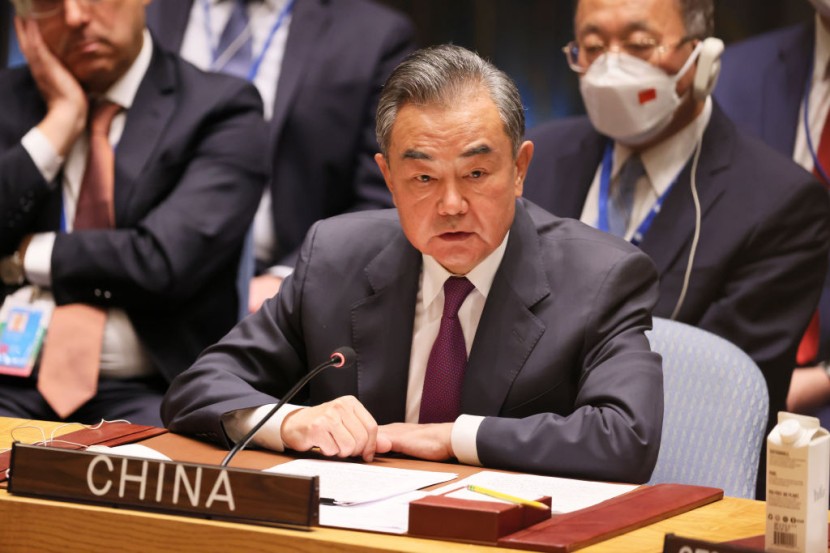
China warns the United States not to stab it in the back with Taiwan talks as American officials continue to use what Beijing authorities call "salami tactics" that challenge the country's "red line" on Taiwan.
The remarks came from China's Ministry of Foreign Affairs and were made after a phone conversation with US Secretary of State Antony Blinken and his Chinese counterpart, Wang Yi. The Chinese official's version of the call had Wang saying that US President Joe Biden's successful meeting with Chinese President Xi Jinping at the November G20 Summit in Bali was a positive sign for the rest of the world.
China-US Relations Over Taiwan
However, Wang warned the US not to pursue dialogue and cooperation while "stabbing China in the back." In a statement, the Chinese Foreign Ministry said that the American government must take Beijing's legitimate concerns seriously and stop containing and suppressing China's development, particularly constantly challenging the red line, as per Fox News.
In their meeting during the November summit, Xi reportedly told Biden that the Taiwan issue was the "very core of China's core interests" and the first red line in bilateral ties that must not be crossed.
A few days after Wang issued his warning, China's military deployed 71 planes and seven ships toward Taiwan in a 24-hour display of force. The move came after Beijing expressed frustration at the self-governed island nation's receiving of provisions in a US annual defense spending bill.
Blinken said, as per China's Foreign Ministry statement, that the US will continue to follow the one-China policy and does not support Taiwan's "independence." However, The American official's version of the discussion was that the two sides talked about the importance of continued dialogue.
According to the Financial Times, the situation comes as the United States is sending a delegation of trade and economic officials to Taiwan on a trip set for next week. It will be held as the Biden administration seeks to continue to support the US' commercial relationship with the self-governed island nation.
Claims of Sovereignty
On Wednesday, the office of the US trade representative announced that its top official responsible for trade with China, Terry McCartin, would lead the delegation. The trip to Taiwan was scheduled for January 14 to January 17. The agency said that officials from other government agencies would also be present during the trip.
Since Biden won the presidency, US government officials have traveled to Taiwan on a few occasions. Washington's ambassador to Palau, John Hennessey-Niland, traveled to the self-governed island nation in early 2021 where he met with top officials, receiving Beijing's condemnation.
Furthermore, last month, a deputy assistant secretary of state, Tony Fernandes, visited Taiwan to discuss economic issues with the region's officials. And when former White House Speaker Nancy Pelosi visited the island last summer, tensions were sharply raised with China, placing Biden in a difficult position.
The general reason why China has been keen on keeping the US from having formal trade relations with Taiwan is that it views the island nation as part of its territory. However, the region's officials and residents continue to reject Beijing's claims, Newsweek reported.
Related Article: Russia-Ukraine War: Moscow Reveals Shocking Way Ukrainians Located Makiivka Base for Massive Missile Attack








